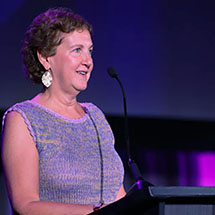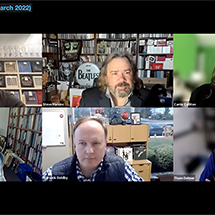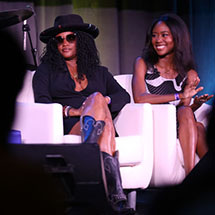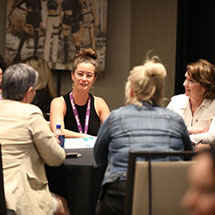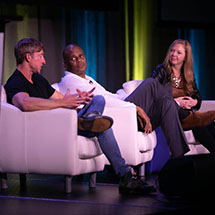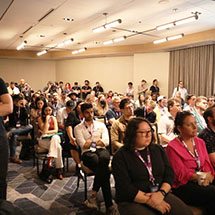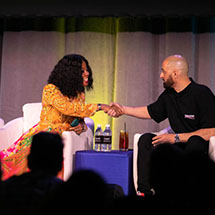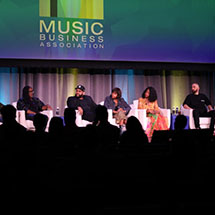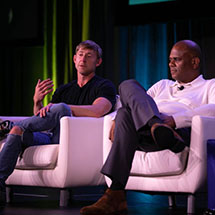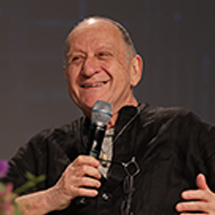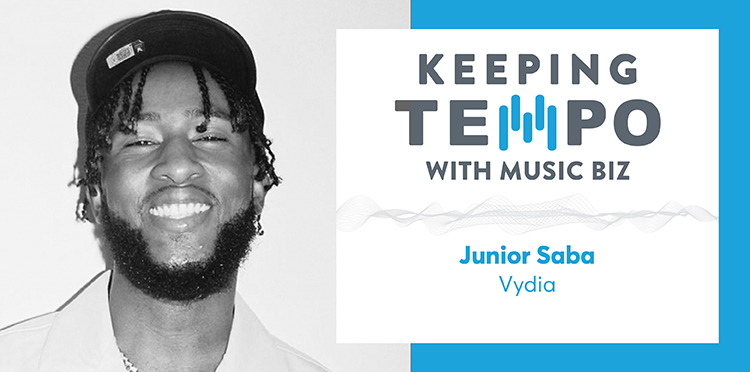
[Keeping Tempo With Music Biz] — Afrobeats Passport Follow-Up: Interview With Vydia’s Junior Saba

With an unfettered ability to transcend borders while maintaining the authenticity of its distinctive sound, Afrobeats has become one of the fastest growing music genres in the world. In a Music Biz Passport event last month, Music Biz member Vydia explored Afrobeats’ rising popularity and how its dynamic relationship with creative globalization showcases the importance of collaboration & tech in establishing lasting musical influence.
The following interview consists of questions asked during the event, answered by Vydia’s Sr. Label & Artist Relations Manager, Junior Saba. Click here to learn more about Music Biz’s Passport Series here & access recordings of all our past Passport events.
Q: How can producers/sound engineers (in Africa) take advantage of the current popularity/globalization of Afrobeats in order to reach more opportunities and earn more globally?
Junior Saba: As both the genre and the artists within the genre continue to grow, so will the collaborators that create the magic. The best way to reach more opportunities will be through these global collaborations, as the ability to create authentic sound requires genuine Afrobeats production.
Q: How can Afro artists and their teams build marketing strategies that resonate with both African and global audiences without diluting the cultural context? Are there specific campaigns or trends that stand out as models of success?
JS: In all honesty, the music is what carries the genre across the world. The marketing strategy of the artist must resonate with home first, then the music itself will carry. Once the fans decide they are into something, it will spread like wildfire. With that being said, my biggest advice is to prioritize authenticity and local connection. That will carry through on a global scale.
Q: How do we ensure that our culture, value and IP stays owned & controlled within the continent when partnering with external organizations & investors like major labels, Live Nation, etc?
JS: It’s a couple of things. First, we must make sure we have executives from the continent in these organizations. It’s a must that people who are from the culture help lead these partnerships and relationships. Second, we must be willing to actually teach, not just take. As the genre is growing, it’s a natural business instinct to go in and exploit. We have to do the opposite. We have to collaborate with the executives out there, work hand in hand with them and provide insight into certain aspects of the business that they may have not been privy to.
Q: Do you believe Afrobeats music will be able to be playlisted more on top U.S. playlists?
JS: Yes, Afrobeats will be playlisted more as the genre increases in popularity globally and within the states. The momentum intertwined with the success of the stars and resonance of the music with fans, in my opinion, will lead to more visibility on U.S playlists.
Q: What are challenges and paths to success of a US-based indie artist trying to break out with an Afrobeats release? If the primary artist is not African, how does that alter the approach to breaking the record?
JS: Some challenges a US-based indie artist might face is the perception of inauthenticity. Collaborating with African Afrobeat artists can help alleviate that notion, and support the artists trajectory in the genre. Campaigning within the continent or country can also help, as well as working with experts within the genre to create strategies that resonate, as well.
Q: Is there an opportunity in physical media that isn’t being fully realized? Maybe the lack of physical music product is one factor holding the genre back despite its massive popularity?
JS: Physical within the genre isn’t at its full potential. Part of it being a lack of infrastructure; the other part, in my opinion, being a general lack of knowledge within the space and how it can drive revenue for the genre. Right now, when people think of physical within the genre, it’s more so merchandising, which is great, but that is just scratching the surface of where we can take it if we approach physical correctly.
Q: How significant is radio to the development of Afro music? And furthermore, does airplay have to be purchased or can radio access be created by virality alone?
JS: Radio is important within the genre, but like radio in general today, it’s not going to move the needle. It will amplify whatever is going on for sure, but it’s not going to break a record. For the most part, radio will help create that awareness locally but it won’t take it further than that. Airplay can definitely be purchased, but it can also be created by virality alone. I’ve seen it with records I’ve worked on myself, where we created a viral moment outside of radio and it was picked up everywhere. At the end of the day, radio stations need to also play what’s hot – it’s what listeners want.
Q: How do we get our Afrobeats artists to expand outside of being pigeon-holed to a singular category?
JS: I think first it’s understanding that African music isn’t limited to what the world assumes it is. We have so many subgenres within the genres already, we need to emphasize it to the community. We have artists who are more R&B leaning, some who are more Hip-Hop/Rap, others that might be Alternative or Rock. There are so many subgenres that we can highlight and it starts with how Afrobeats is being painted to the rest of the world. In addition, getting our streaming platforms, award shows, radio stations, etc, to help paint this narrative that Afrobeats doesn’t just sound like one thing and shouldn’t be categorized as such.
Q: Is the growing success of West African Afrobeats positively influencing the Francophone African musicians/performers? Given that music notes are a global language, is there the potential for creative cross-pollination between English and French speaking African music communities driven by the popularity of Afrobeats?
JS: The success of West African Afrobeats is positively influencing Francophone African musicians as you can see more elements of Afrobeats music blended in the sound. The cross-pollination of English-speaking & French-speaking African artists is already happening with the blend of the sound enriching both communities.
Q: What is the Latin Afrobeat movement, and do you think might be successful?
JS: The Latin Afrobeat movement is a fusion of Latin music and the rhythms and elements of African Music. This cross-cultural sound can be seen with artists like J Balvin & Burna Boy, Ozuna & Davido, Rema & Selena Gomez and more. It’s already proven to be successful as the two genres blend extremely well together and amass global appeal. I believe with more collaborations and emphasized authenticity, it will continue to grow.
You can read past “Keeping Tempo” articles via the portal linked here. And, stay tuned for more insightful discussions from our members and partners from across the industry!

